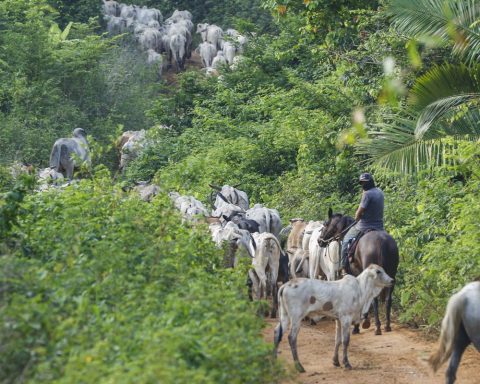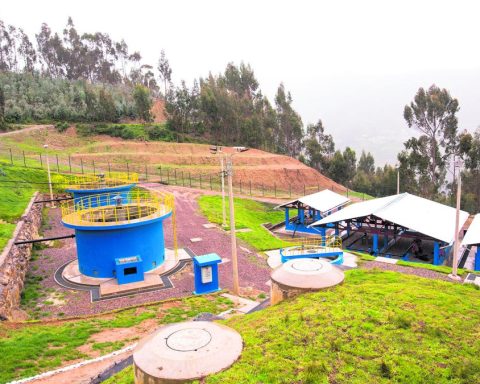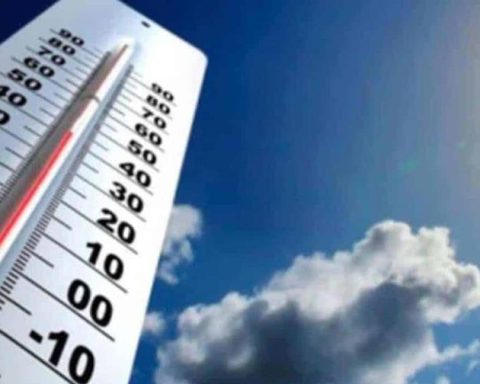Despite all the factors against it, the economy has resisted better than expected, for a series of reasons, among which the increase in the prices of our export products, the behavior of remittances, and the increase in foreign direct investment (FDI) in Nicaragua, according to the report “The war in Ukraine and the economic implications for Nicaragua”, prepared by the Central American Institute of Business Administration (Incae).
When the global economy entered a crisis due to the decisions implemented by the governments of the world to face the covid-19 pandemic, Nicaragua dragged a recession that had started two years earlier, when the country reacted to the massacre perpetrated by the Government of Daniel Ortega and Rosario Murilloas the only way to stop the April 2018 Rebellion.
“In Nicaragua, real GDP increased in 2021, as a result of the economic ‘rebound’ after the pandemic, fostered by the increase in internal and external demand,” the document states. Official data from the Central Bank of Nicaragua (BCN), indicate that, last year, the gross domestic product (GDP), grew 10.3%.
In contrast, remember that both companies and households have had to spend larger amounts to cover the increase in fuel prices, while agriculture has had to buy more expensive fertilizers. In part, for the deepening of the logistics crisis generated by shanghai port closure (China), as well as for the invasion of Ukraine.
According to the aforementioned document, which cites a conclusion generated by the International Monetary Fund (IMF), the Russian aggression represents an opportunity for Nicaragua, as “the ukrainian war offers Latin America the opportunity to boost exports.”
“Although since 2021 commodities have shown an upward trend, the war in Ukraine has increased this trend”, which is good news for several of our export products, which will rise in price, a phenomenon that explains a good part of the growth in income from sales abroad.
An example of this is the rise in prices paid by the international market for Nicaraguan meat, sugar, gold and coffee, which between January 2021 and January 2022 show growth of over 33%.
Thanks to external factors
The economic ‘rebound’ observed in 2021 is explained, in part, by the growth in exports, both of general merchandise, which grew 23.1%, going from 2,852 million dollars in 2020, to 3,510 million in 2021, as well as free zone exports, which went from 2469.1 to 3378 million between 2020 and 2021, which shows a growth of 36.8%.
In the case of general merchandise, four products explain most of the growth of 658 million dollars: between 2020 and 2021, gold generated 202.5 more (30.4%); beef USD 184.8 million (34.1%); coffee 69.7 million (15.9%); and cheese, another 20.6 million (14%).
In the exports generated by the free zone regime, important increases were observed in eight of the ten main products: from the 23.0% in which fishing exports grew, to the 121.8% in which cardboard exports grew, going through 31.5% in textiles grew, and the 52.3% increase shown by harnesses.
The entry of capital flows -both in donations to the Government and in loans for public investment programs, plus the increase in FDI (52.7%, according to the BCN, mainly in energy, mines and telecommunications), and the remittances (exceeded 2 billion in 2021) – has been key for the main macroeconomic variables to remain stable.
Looking to the future, this high house of studies highlights that, after showing an average growth of 1.0% between 2016 and 2021, (which includes the drop in income generated by tourismY the effects of hurricanes Eta and Iota); the IMF forecasts that GDP will grow 3.8% this year, and 2.2% next year, while World Bank experts think it will be 3.0% and 2.5%, respectively.
The BCN predicts that growth for 2022 will range between 4.0% and 5.0%.
Global risks
On a global scale, it is noted that “since January 2022 the IMF changed its growth projections” for this year, marking a drop of 0.5% in relation to the calculation of October 2021, which is explained by the uncertainty caused by omicron and some subvariants; the slow recovery of supply chains; the threat of inflation; the crisis in the Chinese real estate sector, and the effects of the Chinese zero covid policy.
As of February, estimates by the Organization for Economic Co-operation and Development (OECD), indicate that the war in Ukraine will cause a 1% reduction in global growth, and a 1.4% reduction in the Euro Zone, and an increase in global inflation of up to 2.5%, mainly due to variations in commodity prices.
On a local scale, some factors that can condition this performance are, in addition to the increase in fuel prices (regular gasoline went from C$36.42 as of April 12, 2021, to C$47.81 as of April 11, 2022, while super gasoline went from 37.36 to 48.97 córdobas in the same period), as well as that of fertilizers, which is very important in a country like Nicaragua, which depends so much on its agricultural sector.
Diesel -the most consumed fuel in Nicaragua- increased its price by 45.2% in one year: from 29.75 to 43.21 cordobas per liter on the same dates indicated above. “The cost of the electricity rate, although high compared to the rest of the region, has remained constant,” says the Incae document.
These increases, added to the average increase of 11.7% in the prices of our imported products, are reflected in a inflation of almost 8% in the first months of the year, in line with what was observed in the United States, our main trading partner, where year-on-year inflation reached 8.5% in March of this year, “reaching its highest levels in the last 40 years ”, reviews the Incae.

















